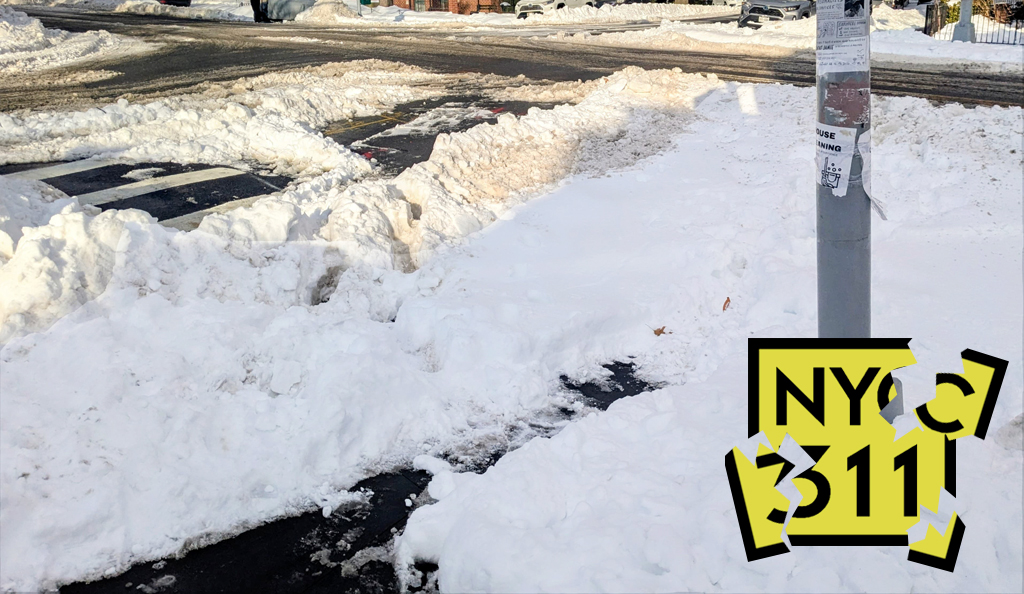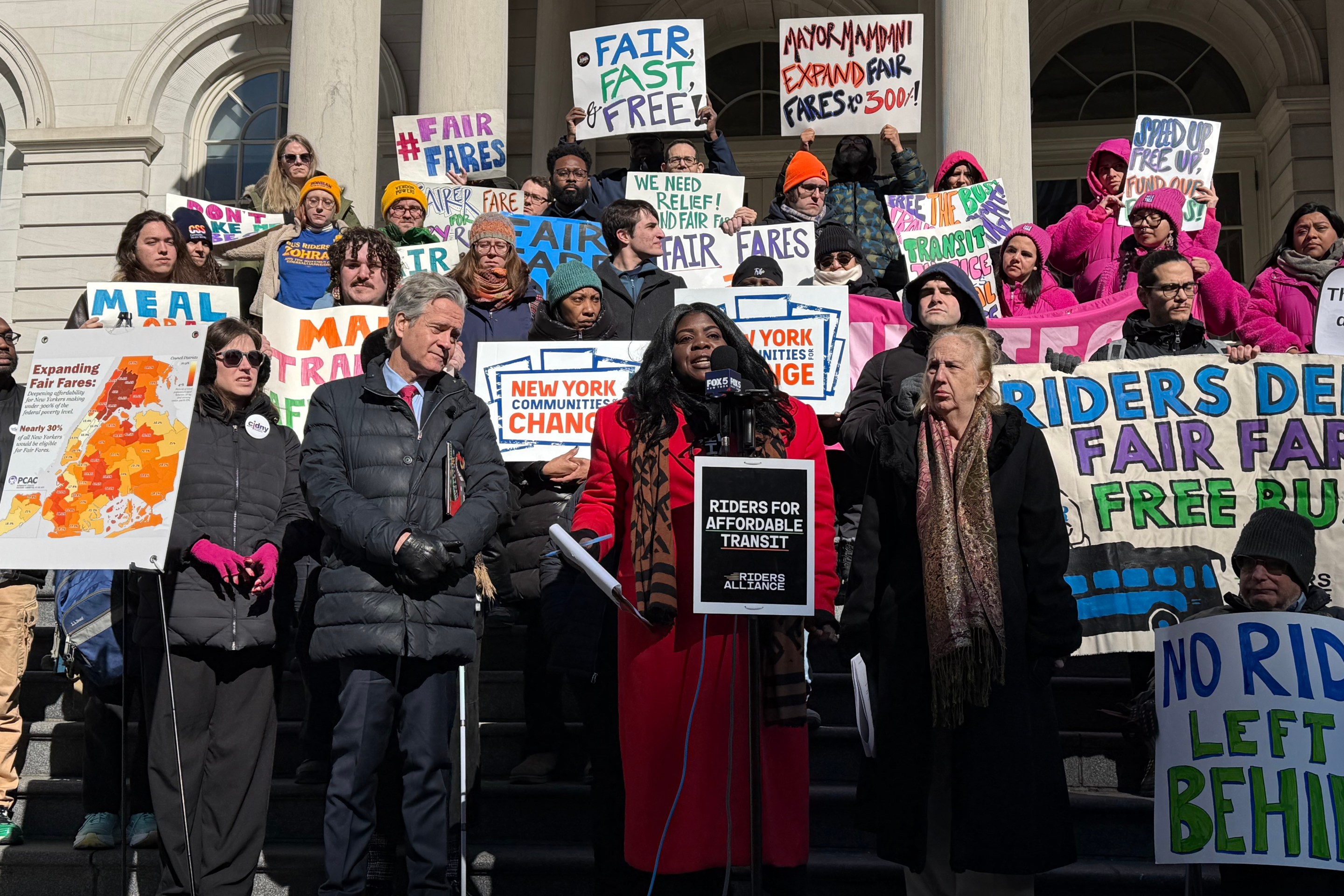 When George Monbiot, the popular columnist for the UK's Guardian newspaper, gets interested in something, he digs and digs until he's found what he's satisfied is the truth. Monbiot is interested in global warming, and presents in Heat: How to Stop the Planet from Burning (U.S. Edition: South End Press, May 2007) a heavily footnoted 215-page brisk and compelling case for why we should all be very worried. This is probably the clearest and broadest book yet published about global warming, with doses of skepticism, inquisitiveness, sobriety and optimism. Every Streetsblog reader should read it. More important, every Streetsblog reader should get it into the hands of five Streetsblog non-readers and ask each of them to do the same.
When George Monbiot, the popular columnist for the UK's Guardian newspaper, gets interested in something, he digs and digs until he's found what he's satisfied is the truth. Monbiot is interested in global warming, and presents in Heat: How to Stop the Planet from Burning (U.S. Edition: South End Press, May 2007) a heavily footnoted 215-page brisk and compelling case for why we should all be very worried. This is probably the clearest and broadest book yet published about global warming, with doses of skepticism, inquisitiveness, sobriety and optimism. Every Streetsblog reader should read it. More important, every Streetsblog reader should get it into the hands of five Streetsblog non-readers and ask each of them to do the same.
Unlike those who look at the enormity of climate change and are tempted to throw up their hands, Monbiot approaches the task of carbon dioxide reduction by tackling serial problems one by one. Yet he isn't deluded into thinking we can solve these issues without making serious and, in some cases, painful changes to our way of life.
The carbon dioxide count in the atmosphere today is 380 parts per million and rising quickly. If the level is allowed to rise above 440 parts per million, Monbiot writes, hundreds of millions of people will face death and dislocation and the planet's ecosystems will be wrecked. Civilization can be saved only by reducing the amount of carbon dioxide it puts into the atmosphere.
The only fair and politically plausible way to accomplished this, he concludes, is for every human being to be given a carbon ration equal to the amount of damage he or she is allowed to inflict on the atmosphere per year. Because of the wide disparity between carbon emissions per country, some nations, like Ethopia and Bangladesh, would actually be able to increase per-capita emissions. But we in the world's "rich nations" would have to cut carbon emissions by 90 percent.
The 90 percent cut (actually a 94 percent cut for the average American, but probably less than 90 percent for the average New Yorker) can be achieved, Monbiot says, in all of these cases but one, as summarized below. It will take immediate, concerted worldwide action far stronger than anything being discussed today.
- Electricity generation: Renewable energy, nuclear power and carbon sequestration and storage, combined with a dramatic decrease in electricity use, can allow us to keep the lights on and achieve the 90 percent emissions cut.
- Home heating: Our homes are leaky, and should be smaller and better insulated. New homes must be made with zero-carbon heating and cooling systems, described in the book.
- Retail: Non-urban shopping must occur via Internet-and-delivery. Suburban strip malls and big box stores must be converted to warehouses and distribution centers, which don't need the heating and cooling and lighting of retail outlets. Small urban shops can remain, but should reduce their energy use.
- Cement manufacture: Common cement must be replaced with something called geopolymeric cement, which is actually stronger than regular cement, Monbiot writes, lasts longer and is more fire-resistant.
- Land transportation: "The speed and acceleration of our cars," writes Monbiot, "is a form of profligacy at which all future generations will goggle." Some limited in-town travel for some people might continue to be plausible, but for intercity travel, we must switch to buses and trains. The greater the extent to which cars could be run from carbon-free energy, the better, but there is more to gain more surely by driving less. "Most of the means of persuading drivers to use other modes of transport are -- by comparison to the billions spent on building roads and bridges -- simple and cheap ... We need governments to start deciding how best to run a transport system, rather than how best to accommodate the private car."
The one area where Monbiot says he has failed to find a solution is aviation, which he writes (fortunately) "happens to be the one which is least necessary to our survival. Unlike heating, lighting, travelling to work, building or shopping, aviation is not required to sustain civilization, though its loss from the lives of most of the people who use it today will be keenly felt."
Commercial aviation as we know it, according to Monbiot, must cease to exist. Airplanes simply produce too much carbon too high in the atmosphere to be allowed to continue flying, and after a thorough investigation, Monbiot found there is no alternative fuel or energy efficiency measure that will allow planes to keep flying while achieving the 90 percent carbon cut. However harsh this may seem, it would be less painful than the alternative. "I have sought the means of proving otherwise," he writes. "But it has become plain to me that long-distance travel, high speed and the curtailment of climate change are not compatible. If you fly, you destroy other people's lives."
Though he does not grant urban planning the weight of a full chapter, Monbiot does mention planning in connection with the topics above. All road widening and construction must be stopped, as this releases carbon itself, encourages driving, and drains money needed for carbon-reduction programs. Similarly, all plans to increase airport runway capacity would be doubly counterproductive.
He humorously mocks "carbon offset" programs as modern-day indulgences and an excuse to avoid real action to reduce one's carbon footprint. Paying someone to plant a tree is useful only if it survives to maturity without killing other trees elsewhere. But more important, its benefit can be measured only against what would have grown in that spot in absense of the offset program, an unknowable fact. The carbon emissions one purchases "the right" to create are real and now, but the so-called offset is hypothetical, potential, and measurable only in the future.
In many respects, we'll just have to do less. Referring as he frequently does to the Faust of Marlowe and Goethe, Mobiot writes that the world will be saved by self restraint:
Accepting that we no longer possess the powers of angels or of devils, that the world no longer exists for our delectation demands that we do something few people in the rich world have done for many years: recognize that progress now depends upon the exercise of fewer opportunities.





